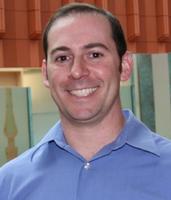Why Some Americans Don’t Believe the Election Results
The electoral votes have confirmed Joe Biden won the 2020 United States presidential election. The presidential electors gave Biden 306 electoral votes to President Donald Trump’s 232 votes. Biden also recorded a solid lead of over 7 million in the popular vote. Nonetheless, results from a new NPR/PBS NewsHour/Marist survey found that approximately three-quarters of Republicans did not trust the […]

 David Mayer
David Mayer I am an organizational scholar who focuses primarily on one fundamental question: When and why do individuals in organizations engage in unethical and prosocial behavior? More specifically, I am interested how the social environment in organizations (e.g., leadership, peers, organizational climate, organizational practices) impacts unethical and prosocial behavior.
I am an organizational scholar who focuses primarily on one fundamental question: When and why do individuals in organizations engage in unethical and prosocial behavior? More specifically, I am interested how the social environment in organizations (e.g., leadership, peers, organizational climate, organizational practices) impacts unethical and prosocial behavior.